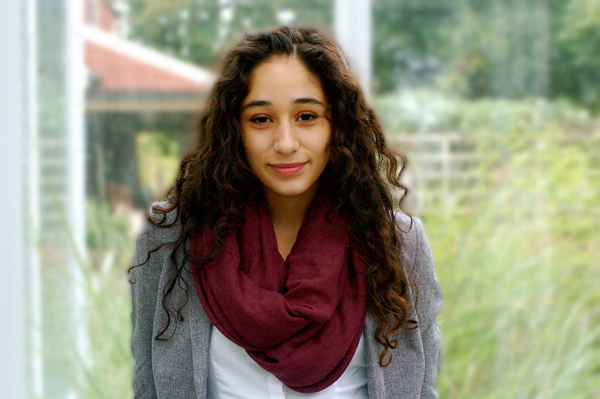
Pittsburgh teens who are changing our world
When Charlotte Murphy was in fourth grade in 2010, she joined the basketball team at Linden K-5. Then she discovered the true state of girls’ basketball in Pittsburgh Public Schools (PPS).
“There were two girls’ teams throughout the whole public school system, but the boys had like, 10, teams,” says Charlotte. “It really stunk that we had only three games the entire time”—a “season” that consisted of playing the other PPS girls’ elementary school team twice, plus a local private school.
At first, PPS moved to cancel the season. “I just got really mad because it wasn’t fair,” Charlotte says. But instead of fuming, Charlotte took action. She met with Senior Staff Attorney Susan Frietsche in the local office of the Women’s Law Project to discuss Pittsburgh Public School’s legal obligations to provide girls’ sports teams under the federal Title IX statute.
And she went right to the top: she wrote a letter to Superintendent Linda Lane. “I asked if we could get together and talk it through. She called my mom, and they set up a meeting.”
Charlotte thought the idea of meeting Lane was “scary,” but in person found her to be
“really nice. She was shocked. She said, ‘I didn’t know this was going on. I want to change this.’ She thought it was really unfair, too.”
Thanks to Charlotte’s effort, the district held tryouts for girls and boys teams the next year. Some of the principals feared that requiring both teams in each school would cause boys’ teams to be cancelled, says Charlotte’s mother, Ann Belser, but the girls overwhelmingly wanted teams.
“When 40 kids showed up for tryouts at Dilworth, they were very surprised,” Belser says. Now there are 18 schools with both girls’ and boys’ teams.
“I’m just really proud that all these girls want to play girls’ basketball,” Charlotte says—and that she made it happen.
Charlotte and other local teen girls brought their inspiring stories to Be Inspired: Girls Can Change the World on Feb 23, and event of the Girls Coalition of Southwestern Pennsylvania.
Headlining Be Inspired were two 14-year-old girls, Julia Bluhm and Izzy Labbe of Waterville, Maine, who successfully pushed Seventeen magazine to pledge not to alter images of girls in its publication, to depict girls of diverse sizes, and to offer information about proper eating and exercise habits.
“We didn’t expect something we did could make such a difference,” says Julia. She subscribes to Seventeen but objected to the sexualized portrayal of women and girls in this and other media.
The national SPARK Movement (Sexualization Protest, Action, Resistance, Knowledge) and the local Hardy Girls, Healthy Women aided Julia and Izzy in gathering 85,000 signatures, after which Seventeen magazine Editor-in-Chief Ann Shoket met with the pair in her New York office.
“She said she understood what we’re talking about, but she didn’t agree to anything at the time,” reports Julia. However, just a few months later, Seventeen made a public pledge to change its practices.
Other local teens at Be Inspired did the same.
The Ellis School senior Laila Al-Soulaiman appeared with Charlotte Murphy to discuss her own activism, which is drawing attention to the violence in Syria. And Belle Vernon Area High School senior Sarah Pesi talked about her continuing effort to create a better state law against stalking and harassment.
Al-Soulaiman, of North Huntingdon, has lost more than a dozen members of her family in the Syrian conflict, which began in her hometown, Daraa. Since the country’s internal fighting began, she has organized a local panel discussion on Syria as well as several art installations serving as public protests.
Most recently, she has been helping to teach an Ellis course on art and activism, during which students created an installation in Oakland’s Schenley Plaza. “I wanted to create a visual representation of how constant Syria was in my mind,” she says.
She and her fellow students attached 300 black balloons to bamboo rods in a grid throughout the plaza. At the time she conceived the project, the death toll in the Syrian conflict was 30,000, so each balloon represented 100 people. By the time of the installation, that death toll had doubled. Today it is 70,000.
Now she is working to expand her teaching about Syria to other schools. She will hold a class for four different grade levels at Sewickley Academy this month. “I would love to expand to public schools,” she says.
It is sometimes difficult, as a 17-year-old, to get others to take her activism seriously enough, Laila notes. “My age can sometimes be a factor in turning me away” from a task she knows she must do, such as meeting with businesspeople to gather support for her cause.
However, she realizes, “being silent doesn’t do anything. But … it is intimidating when the situation seems dismal.” She recalls the message given to her by an Ellis advisor: “‘There is power in youth and inexperience.’ That is something I need to remind myself all the time.”
She was the only teen delegate to a recent Arab Development Initiative at New York University. There she proposed starting City to Village, which would create sister cities between U.S. and Syria to raise awareness and funds to rebuild Syrian towns. She hasn’t implemented this plan yet.
“But it is something I foresee in my future,” she says. “Working with young people especially has rejuvenated my faith in the revolution, my hope for a better future in Syria. It has shown me that there are still people who do not know — and still people who care.”
Sarah Pesi was only 12 when harassment and stalking by an adult turned her into an activist. She found herself unable to go to police for a Protection From Abuse order, since those are reserved for adults already in relationships. So she decided to try to change the law.
“I know what it is to be in that situation and I really want other people to have protection,” Sarah says. “Everybody should have the right to feel safe at their job or their home.”
Since the incident, which resolved itself without legal action, she joined the local Women and Girls Foundation’s youth and government program, where she learned how to draft a bill.
“I wasn’t content with leaving it as an imaginary bill,” she says. “I took it to my representative and he agreed to sponsor it.”
Rep. Ted Harhai introduced House Bill 1535 in the 2011-12 state legislative session, but it didn’t come up for a vote. She has since learned to be an advocate for her proposed law, meeting with the chairs of the Judiciary Committee in Harrisburg in an effort to get one of them to sponsor it, since her bill has to be approved by that committee. “We’re trying to get a whole bunch of grassroots support, then go out to the capitol. Hopefully it will move faster if we can show all these people are supporting it.”
“I’m very much emotionally invested in my bill,” she adds. “I can’t tell you how many people have shared their own experiences. That’s the driving force. People come up and thank me and I really haven’t done anything yet. I really want to help people.
“If I can do this, anyone can do this,” Sarah concludes. “I want to get as many people organized as possible, and make them feel like they have a big role in it.”
Mediate, of the Girls Coalition, felt attendees at the Be Inspired event would learn the process of taking an issue and turning it into action, and also how to connect to other people and resources, so the girls feel they can get help.
“At some of the steps in the process, we know that adults are the problem,” Mediate says. “At other steps, we know girls need adults to help them move forward.”
Julia Bluhm knows that activism isn’t easy and the outcome of any effort isn’t certain. “At first, I thought I was seeing a difference” in the way Seventeen published photos and information after their pledge in August 2012, she says. At first, the magazine had featured plus-size models expressing satisfaction with their bodies. But then its website ran a body mass index calculator that set a healthy BMI for teens that seemed “very, very underweight,” Bluhm said. The publication is also collaborating with the television showThe Biggest Loser‘s teen program, which encourages participants to lose weight too quickly and to exercise until they pass out, Bluhm says.
But that hasn’t discouraged Bluhm and partner Izzy Labbe from setting future activism goals. “Izzy and I were talking the other day — we want to write a book together about feminism and activism for teens,” she says.
Nor will mere physics and biology discourage Charlotte Murphy from pursuing her basketball career — eventually. This year, she is a sixth grader at Pittsburgh Sterrett 6-8. She was on the volleyball team, but the basketball team is out of reach, for the moment: “I’m half the height of most of the girls on the team!”

